2018 Experts
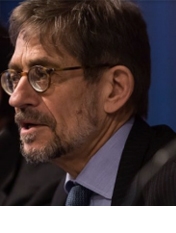
Keynote Speaker: Thomas Graham
Thomas Graham is a managing director at Kissinger Associates, Inc., where he focuses on Russian and Eurasian affairs. He was Special Assistant to the President and Senior Director for Russia on the National Security Council staff from 2004 to 2007 and Director for Russian Affairs on that staff from 2002 to 2004. From 2001 to 2002, he served as the Associate Director of the Policy Planning Staff of the Department of State. From 1998 to 2001, Mr. Graham was a senior associate in the Russia/Eurasia program at the Carnegie Endowment for International Peace. From 1984 to1998, he was a Foreign Service Officer. His assignments included two tours of duty at the U.S. Embassy in Moscow, where he served as head of the political/internal unit and acting political counselor. Between tours in Moscow, he worked on Russian and Soviet affairs on the Policy Planning Staff of the Department of State and as a policy assistant in the Office of the Undersecretary of Defense for Policy. Graham is one of the founders and co-Directors of the Russian Studies Project at Yale.
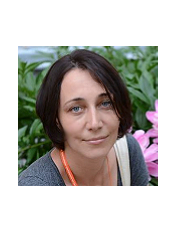
Anastasia Bonch-Osmolovskaya
Anastasia Bonch-Osmolovskaya is an associate professor of the Philological Department, academic director of MA programs in Computational Linguistics, and head of the Digital Humanities Group in the Faculty of the Humanities at the National Research University a Higher School of Economics (HSE) in Moscow, Russia. Prior to joining the faculty at HSE, she worked as a linguistics expert and consultant for private sector R&D companies including AviComp Services, RCO and Rosnano. Her research has been published in both English and Russian. Professor Bonch-Osmolovskaya holds a Masters in theoretical and computational linguistics from Moscow State University Lomonosov. She also received a PhD in linguistics from Moscow State University Lomonosov in 2003.
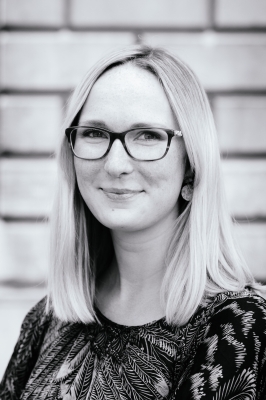
Andrea Berger
Andrea Berger is a Senior Research Associate and a Senior Program Manager at the James Martin Center for Nonproliferation Studies (CNS), based in London. Her research interests include North Korea’s WMD programs, sanctions and export controls, countering proliferation finance, and nonproliferation and disarmament diplomacy. Ms. Berger conducts detailed investigations into illicit networks using open-source intelligence techniques, in support of counterproliferation efforts. She is also a regular contributor at Arms Control Wonk, 38 North, and NK News. In addition to her full-time position with the CNS, Ms. Berger is currently a Visiting Fellow in the Centre for Science and Security Studies (CSSS) at King’s College London, as well as an Associate Fellow at the Royal United Services Institute. Prior to joining CNS, Ms. Berger was the Deputy Director of the Proliferation and Nuclear Policy Programme at the Royal United Services Institute. She was also the Director of the UK Project on Nuclear Issues (UK PONI), a network of over 900 emerging and established experts in the UK nuclear community. Between 2012 and 2015, Ms. Berger led track one-and-a-half security talks with the North Korean People’s Army and Worker’s Party, both in Pyongyang and London. She has worked extensively with the Financial Action Task Force and its regional bodies, as well as with financial institutions, to develop their approaches to countering proliferation finance. Ms. Berger has been a delegate to the Proliferation Security Initiative’s Operational Experts Group, as well as a UK representative at the 2014 and 2016 P5 Conferences.

Sarah Bidgood
Sarah Bidgood is a Senior Research Associate and Project Manager at the James Martin Center for Nonproliferation Studies (CNS), based in Monterey, CA. Her areas of research include US-Soviet and US-Russia nonproliferation cooperation, as well as nonproliferation and disarmament diplomacy. Previously, Ms. Bidgood was a graduate research assistant at CNS and the project manager for the Graduate Initiative in Russian Studies. Sarah is a member of the CTBTO Youth Group, and she served as an intern at the UN Office for Disarmament Affairs during the 2015 NPT Review Conference. Before coming to Monterey, she worked in the field of scientific publishing as a managing editor and peer review manager. Ms. Bidgood authored Once and Future Partners: the US, Russia, and Nuclear Nonproliferation (with Dr. William Potter; Routledge, forthcoming 2018) and “Join the Comprehensive Test Ban Treaty’s International Monitoring System” (with Sylvia Mishra for the Stimson Center’s Off Ramps Initiative). Ms. Bidgood earned her BA in Russian from Wellesley College. She also holds an MA in Russian, East European, and Eurasian Studies from the University of North Carolina at Chapel Hill and an MA in Nonproliferation and Terrorism Studies from the Middlebury Institute of International Studies.
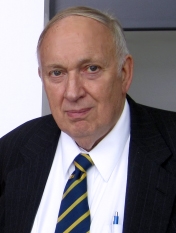
Linton Brooks
Linton F. Brooks is a former US Ambassador and former Under Secretary of Energy for Nuclear Security and Administrator of the National Nuclear Security Administration (NNSA). He serves as an independent consultant on national security issues, a senior adviser at CSIS, a distinguished research fellow at the National Defense University, and an adviser to four of the U.S. Department of Energy (DOE) national laboratories. He served from July 2002 to January 2007 as administrator of DOE’s National Nuclear Security Administration, where he was responsible for the U.S. nuclear weapons program and for DOE’s international nuclear nonproliferation programs. Ambassador Brooks has five decades of experience in national security, much of it associated with nuclear weapons. His government career has included service as deputy administrator for nuclear nonproliferation at the National Nuclear Security Administration, assistant director of the U.S. Arms Control and Disarmament Agency, chief U.S. negotiator for the Strategic Arms Reduction Treaty, director of defense programs and arms control on the National Security Council staff, and a number of U.S. Navy and Defense Department assignments as a 30-year career naval officer. Ambassador Brooks holds degrees in physics from Duke University and in government and politics from the University of Maryland and is a distinguished graduate of the U.S. Naval War College. He has been associated with the CSIS Project of Nuclear Issues (PONI) since its inception.
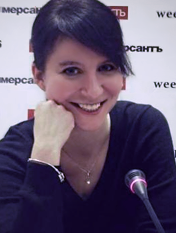
Elena Chernenko
Elena Chernenko is a columnist and head of the foreign desk at the Kommersant daily newspaper in Moscow, Russia, where she likes to focus on issues of cybersecurity. She has previously worked for Russian Newsweek, the German editorial office of Voice of Russia, the Moskauer Deutsche Zeitung newspaper and the EurActiv news agency. She holds a Ph.D. in history from Moscow State University.
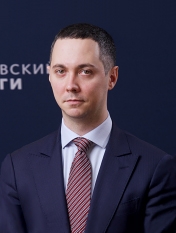
Alexander Gabuev
Alexander Gabuev is a senior fellow and the chair of the Russia in the AsiaPacific Program at the Carnegie Moscow Center. His research is focused on Russia’s policy toward East and Southeast Asia, political and ideological trends in China, and China’s relations with its neighbors—especially those in Central Asia. Prior to joining Carnegie, Gabuev was a member of the editorial board of Kommersant publishing house and served as deputy editor in chief of Kommersant-Vlast, one of Russia’s most influential newsweeklies. Gabuev started his career at Kommersant in 2007 working as a senior diplomatic reporter, as a member of then president Dmitry Medvedev’s press corps, and as deputy foreign editor for Kommersant. His reporting covered Russia’s relations with Asian powers and the connection between Russian business interests and foreign policy. Gabuev has previously worked as a nonresident visiting research fellow at the European Council on Foreign Relations (ECFR) and taught courses on Chinese energy policy and political culture at Moscow State University.
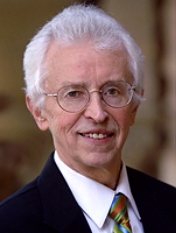
Siegfried Hecker
Siegfried S. Hecker is a professor (research) in the Department of Management Science and Engineering and a senior fellow at the Freeman Spogli Institute for International Studies (FSI) at Stanford University. He was co-director of CISAC from 2007-2012. From 1986 to 1997, Dr. Hecker served as the fifth Director of the Los Alamos National Laboratory. Dr. Hecker is an internationally recognized expert in plutonium science, global threat reduction, and nuclear security. Dr. Hecker joined Los Alamos National Laboratory as graduate research assistant and postdoctoral fellow before returning as technical staff member following a tenure at General Motors Research. He led the laboratory’s Materials Science and Technology Division and Center for Materials Science before serving as laboratory director from 1986 through 1997, and senior fellow until July 2005. Dr. Hecker’s research interests include plutonium science, nuclear weapons policy, nuclear security, and the safe and secure expansion of nuclear energy. Dr. Hecker has visited North Korea frequently in an unofficial capacity to assess the plutonium program at the Yongbyon Nuclear Scientific Research Center. Over the past 20 years, he has fostered cooperation with the Russian nuclear laboratories to secure and safeguard the vast stockpile of ex-Soviet fissile materials. Dr. Hecker’s research projects at CISAC focus on reducing the risks of nuclear terrorism worldwide and the challenges of nuclear India, North Korea, Pakistan, and the nuclear aspirations of Iran. Dr. Hecker has also published a two-volume book on the history of Russian-U.S. laboratory-to-laboratory cooperation since 1992.
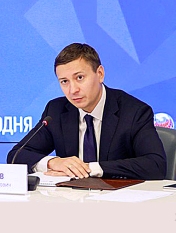
Anton Khlopkov
Mr. Anton Khlopkov is Editor-in-Chief of the Nuclear Club journal. He is also a member of the Advisory Board under the Security Council of the Russian Federation. From 2000 to 2009 he has worked for the PIR Center (Center for Policy Studies in Russia), including as Deputy Director (2003-2007) and Executive Director (2007-2009). In 2001-2002, he was a Member of the Working Group on Nonproliferation and Export Control of the Partnership for Peace Consortium. He is the Editor-in-Chief of the Nuclear Nonproliferation Encyclopedia (2009). Co-author of the monographs: ‘Iranian nuclear program in the US-Russian relations’ (2001),‘At the Nuclear Threshold: The Lessons of North Korea and Iran for the Nuclear Non-Proliferation Regime’ (2007); ‘Global Partnership Against the Spread of Weapons of Mass Destruction Guidebook’ (2006); ‘Nuclear Nonproliferation in Russian-American Relations: History, Opportunities and Outlook’ (2000); author of the monograph ‘Iran’s Nuclear Program in Russian-American Relations’ (2001).
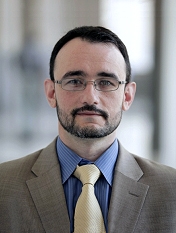
Michael Kofman
Mr. Michael Kofman is a Research Scientist at CNA Corporation and a Fellow at the Kennan Institute, Woodrow Wilson International Center in Washington, D.C. His research focuses on security issues in Russia and the former Soviet Union, specializing in defense and military analysis. Previously he served at National Defense University as a Program Manager and subject matter expert, advising senior military and government officials on issues in Russia/Eurasia and Pakistan. He has represented the Department of Defense in track one and track two efforts, through military engagement programs and strategic exchanges with Russian officials, the Chinese and Pakistani military, along with trilateral dialogues. At NDU he oversaw military-to-military engagements, training programs, and interoperability exercises for senior officers from the US and other countries. His previous experience includes working as a researcher at the U.S. Institute of Peace, HSBC Bank, and on international science and technology cooperation programs at NASA. He has published articles on security issues in Eurasia, focusing on Russia and Ukraine, along with numerous analyses for the US government. He has also appeared in major television, online, and print media as a commentator and subject matter expert. Mr. Kofman holds a M.A. in International Security from the Edmund A. Walsh School of Foreign Service, Georgetown University and a B.A. in Political Science from Northeastern University.
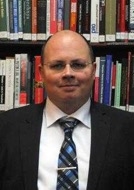
Nikolay Kozhanov
Dr. Nikolay Kozhanov is an academy associate at the Russia and Eurasia Program of Chatham House and a senior lecturer in political economy of the Middle East at the European University at St. Petersburg (Russia). From 2006 to 2009, he served as an attaché at the political section of the Russian embassy in Tehran. After the end of his tenure with the Russian Ministry of Foreign Affairs, Dr. Kozhanov started the career of an independent political analyst and researcher with a special focus on modern Iran and Russian foreign policy in the Middle East. Dr. Kozhanov’s recent publications include Iran’s Strategic Thinking: The Evolution of Iran’s Foreign Policy 1979-2017 (London, Berlin: Gerlach Press, 2018).
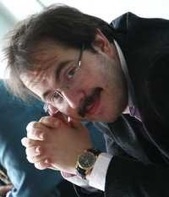
Vasily Kuznetsov
Dr. Vasily Kuznetsov (PhD in history, 2010) is the Head of the Center for Arab and Islamic Studies, Institute of Oriental Studies under the Russian Academy of Sciences; Associate Professor in the Faculty of World Politics, Moscow State University; senior policy adviser of the Russian Contact Group for an Inter-Libyan Settlement under the Russian Foreign Ministry and Parliament. He is author of several analytical reports for the International Discussion Club “Valdai”, for the Russian International Affairs Council (RIAC), author of a monograph on political transformation in post-revolutionary Tunisia written on fieldwork (2011-2017). He is also a regular contributor with Al-Monitor. Vasily A. Kuznetsov is interested in the study of socio-political processes, problems of statehood and religious life in contemporary Arab societies. He is involved in several Track II initiatives related to Russian policy in the Middle East.
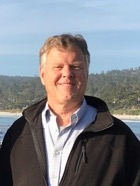
Jeffrey Larsen
Jeffrey Larsen is a is a research professor in the Department of National Security Affairs, US Naval Postgraduate School, Monterey, CA, and president of Larsen Consulting Group. He was director of the Research Division at the NATO Defense College, Rome, from 2013-2018. Prior to that assignment, he served for 16 years as a senior policy analyst with Science Applications International Corporation, and 21 years in the U.S. Air Force as a command pilot in Strategic Air Command, associate professor of Political Science at the Air Force Academy, and first director of the Air Force Institute for National Security Studies. He has been an adjunct professor at Northwestern, Denver, and Texas A&M Universities, and was NATO’s 2005 Manfred Wörner Fellow. He holds a PhD in politics from Princeton University, and is author or editor of more than 150 books, journal articles, chapters, and monographs, including NATO’s Response to Hybrid Threats (NDC, 2015), and On Limited Nuclear War in the 21st Century (Stanford, 2014). His current research projects include a study of strategic stability in Europe for the Defense Threat Reduction Agency.
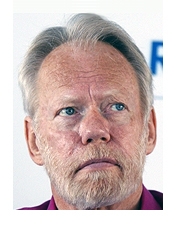
Robert Legvold
Dr. Legvold is Marshall D. Shulman Professor Emeritus in the Department of Political Science at Columbia University, where he specializes in the international relations of the post-Soviet states. He was Director of The Harriman Institute, Columbia University, from 1986 to 1992. Dr. Legvold’s areas of particular interest are the foreign policies of Russia, Ukraine, and the other new states of the former Soviet Union, U.S. relations with the post-Soviet states, and the impact of the post-Soviet region on the international politics of Asia and Europe. Legvold is a former trustee of the Carnegie Endowment for International Peace,and a member of various advisory boards, including those of the Committee on International Security Studies of the American Academy of Arts and Sciences, the Watson Institute for International Studies at Brown University, and the Foundation for International Peace and Democracy, led by Mikhail Gorbachev. He is a fellow of the American Academy of Arts and Sciences and a foreign member of the Russian Academy of Social Sciences.

Tattu Mambetalieva
Ms. Mambetalieva is a Director of the Civil Initiative on Internet Policy Public Foundation (Kyrgyzstan) and Regional Director of the Open Net Eurasia project. Tattu is one of the national and regional champions for digital sustainable development of the countries across CIS. As an expert with over 20 years of experience in the policy and legislation of the Information and Communication Technologies (ICT), Tattu has been promoting the legal and regulatory reforms in the ICT industry and ICT for development of other industries to ensure independent, transparent, and predictable regulation of the telecom market, which empowers competition among multiple actors and their creativity for provision of ubiquitous access of citizens to data, information resources and services.
Tattu is also actively engaged in the CIS regional and international advocacy of ICT policy and legislation framework for improved cybersecurity, protection of personal data, and promotion of digital rights through strengthening partnership with the civil society and regional multi-national bodies across CIS, including Regional Communications Commonwealth, the CIS Inter-Parliamentary Assembly, the Shanghai Cooperation Organization, the CIS Anti-Terrorism Centre. She is initiator and organizer of the Central Asian Forum on Internet Governance and the Central Asia Security Forum on Countering Extremism Online.
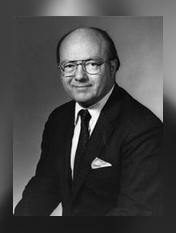
Jack Matlock
Mr. Jack Matlock, a retired diplomat, has held academic posts since 1991: Sol Linowitz Professor of International Relations, Hamilton College, 2006; visiting professor and lecturer in public and international affairs at Princeton University, 2001-2004; George F. Kennan Professor at the Institute for Advanced Study, 1996 - 2001; Senior Research Fellow and then Kathryn and Shelby Cullom Davis Professor in the Practice of International Diplomacy at Columbia University, 1991 to 1996. During his 35 years in the American Foreign Service (1956-1991) he served as Ambassador to the Soviet Union from 1987 to 1991, Special Assistant to the President for National Security Affairs and Senior Director for European and Soviet Affairs on the National Security Council Staff from 1983 until 1986, and Ambassador to Czechoslovakia from 1981 to 1983.
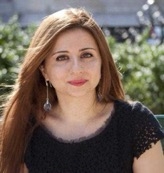
Nazrin Mehdiyeva
Dr. Nazrin Mehdiyeva is Academic Visitor at St Antony’s College, Oxford University, and an independent geopolitical and energy consultant working with international institutions and energy majors. Dr. Mehdiyeva specializes in energy security and geopolitics. The subject of her special interest is the interrelationships between political decision-making and hydrocarbons production and exports. Her primary regions of specialization are Russia and Eurasia, but she also works on the global dynamics of oil and gas, covering the United States, Australia, and the Middle East. She has recently held a number of senior positions in the private sector and is a regular contributor to the debate on the future of European energy security. Dr. Mehdiyeva holds DPhil in International Relations from Oxford University and MPhil in Russian and East European Studies. Dr. Mehdiyeva regularly publishes articles in academic and industry journals. She has made a significant contribution to an inter-disciplinary volume, Beyond Blood Oil (co-authored with Professor Leif Wenar et al.), which is due to be published in August by Rowman & Littlefield as part of their Hot Topics Series. Dr. Mehdiyeva’s book Power Games in the Caucasus was published by I. B. Tauris in 2011. Her current interest focuses on Russian energy strategy and foreign policy, on which she is writing her latest monograph.
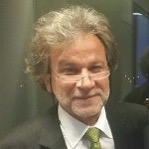
Holger H. Mey
Dr. Holger H. Mey is Vice President at Advanced Concepts at Airbus Defense and Space (DEU) in Munich, Germany. Before joining which was then EADS Defense & Security (then Cassidian, and now Airbus) in June 2004, Prof. Mey worked for 12 years as a self-employed security policy analyst and consultant in Bonn, Germany. Among many other functions, Prof. Mey served as President & CEO of the Institute for Strategic Analyses (ISA) in Bonn, Germany. Over many years, he was a frequent TV and radio commentator, publisher, and lecturer. Dr. Mey is an Honorary Professor for Foreign Policy at the University of Cologne, Germany. Prof. Mey began his professional career 1986 as a Research Associate at the Stiftung Wissenschaft und Politik (Foundation for Science and Politics) then in Ebenhausen, now in Berlin, Germany. From 1990 to 1992, he served as a Security Policy Analyst on the Policy Planning Staff of the German Minister of Defense. From 1992 to 1994, already self-employed, he became the Security Policy Advisor to the Chairman of the Defense Committee in the German Parliament. In 1992, he founded the ISA and directed and conducted well over 30 studies for various Ministries and Government Agencies. He is a member of many international and national foreign and security policy associations, including the International Institute for Strategic Studies (IISS, London) and the Deutsche Gesellschaft für Auswärtige Politik (the German Council on Foreign Relations, DGAP), Berlin. He is also an Honorary Ancien of the NATO Defense College (NDC) in Rome.

Hanna Notte
Hanna Notte is a Political Officer with The Shaikh Group. She supports the organization’s engagement with Russia related to its Syria Track II Dialogue Initiative specifically, and also works on other Track II dialogues related to the MENA region. Hanna recently completed her DPhil on Russian-US cooperation in the Middle East at the University of Oxford (St. Antony’s College), from where she also received an MPhil in International Relations in 2014. She spent a year between 2015-2016 in Moscow on an ‘Alfa Fellowship’ with the Institute of Oriental Studies and the Carnegie Moscow Center. Other visiting research positions have included the IISS’ Middle East office in Manama, Bahrain and the Konrad-Adenauer-Foundation’s Syria/Iraq office in Beirut, Lebanon. Hanna holds a BA in Social and Political Sciences from the University of Cambridge and worked at Goldman Sachs’ London offices as a strategic equity analyst from 2010-2012. Her research interests focus on Russian foreign policy in the Middle East (especially the Levant and Iran) and Russian-U.S. relations. She is a German national who speaks Russian, Arabic and French.
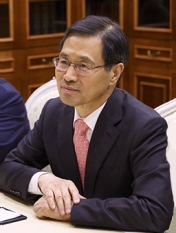
Ro-Byug Park
Ro-Byug Park most recently served as the Ambassador of the Republic of Korea to the Russian Federation. His current position is the Secretary General of the International Conference of Asian Political Parties (ICAPP). Ambassador Park holds a Postgraduate Diploma in International Relations from the London School of Economics, as well as a Ph.D. in History from the Diplomatic Academy of the Ministry of Foreign Affairs of the Russian Federation. His dissertation was on, “History of Korean Russian Relations, Trade and Economic Aspects (1884-1903).” Later, Ambassador Park was a Visiting Fellow at Georgetown University (2007-2008). Ambassador Park is author of several books, including “Twenty Years of Economic Relations between Korea and Russia (1884-1903)” and “Paradigms of International Relations.” Both books are in Korean. Ambassador Park has received several awards for his diplomatic service, most recently the Youngsan Diplomat of the Year Award from the Seoul Forum in March 2016. Ambassador Park has worked for the diplomatic corps in Switzerland, Russia, Uzbekistan, Myanmar and the United States.
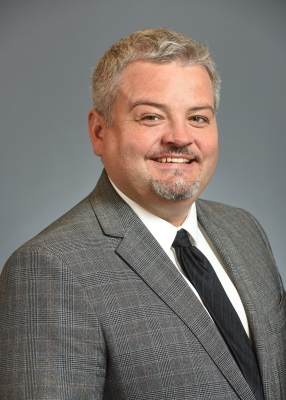
Andrii Paziuk
Dr. Andrii Paziuk is a non-residential fellow at Fellow Track 1.5 Project in US-Ukraine Cybersecurity Dialogue, Center for Cyber and Homeland Security, George Washington University, and a Hubert H. Humphrey (Fulbright Program) Fellow (2017-2018) at American University Washington College of Law. Dr. Paziuk is an Associate Professor at Taras Shevchenko National University Institute of International Relations, Kyiv, Ukraine. He defended his PhD thesis devoted to the protection of privacy, and personal data trans-border flows in 2004 and his post-doctoral research on International Cyber Law in 2016. For more than ten years he used to work for the Parliament of Ukraine as a legal adviser drafting Access to Public Information Act, Personal Data Protection Act, National Cyber Security Strategy, etc. He used to work for the Ministry of Transportation and Communications as Head of Analytical Department (2006-2008), and First Deputy to the National Accreditation Agency of the Ministry of Economic and Development of Ukraine (2008-2010). Since 2012, Dr. Paziuk used to be a lecturer and LL.M. program tutor of International Cyber Law at Taras Shevchenko National University of Kyiv. Dr. Paziuk is a member of the Steering Committee of the Ukrainian National Internet Governance Forum, Director for the Ukrainian Academy of Cyber Security. He has contributed to the UNIDIR’s International Law and State Behavior in Cyberspace Series and Cyber Stability two seminars in 2015, Oman and Geneva. Dr. Paziuk used to work for the European Union and the Council of Europe Program “Strengthening Information Society in Ukraine” in 2014-2016 as a trainer for trainers-judges, delivering the course “Internet Governance and Human Rights” for the National School of Judges. He has contributed to the Freedom Online Coalition’s Working Group 2 “Output Document on Digital Development and the Rule of Law” and published blog-post “Internet Governance and the Rule of Law”.
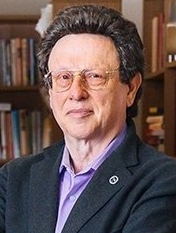
William Potter
Dr. William Potter is Sam Nunn and Richard Lugar Professor of Nonproliferation Studies and Founding Director of the Center for Nonproliferation Studies at the Middlebury Institute of International Studies at Monterey. He is the author or editor of over 20 books, including two volumes on Forecasting Nuclear Proliferation in the 21st Century (Stanford University Press, 2010), The Global Politics of Combating Nuclear Terrorism (Routledge, 2010), Nuclear Politics and the Non-Aligned Movement (Routledge, 2012), and Preventing Black Market Trade in Nuclear Technology (Cambridge University Press, forthcoming 2017). Dr. Potter has served on numerous committees of the US National Academy of Sciences and for five years was a member of the UN Secretary-General’s Advisory Board on Disarmament Matters. He has been an advisor to the delegation of Kyrgyzstan at every NPT Review Conference and Preparatory Committee meeting since 1995. He is renowned for his work on disarmament and nonproliferation education, and is regarded as one of the world’s leading authorities on the use of simulations for pedagogical purposes.
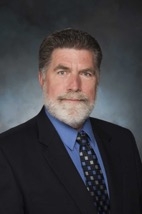
Brad Roberts
Brad Roberts is director of the Center for Global Security Research at Lawrence Livermore National Laboratory in California. From April 2009 to March 2013 he served as Deputy Assistant Secretary of Defense for Nuclear and Missile Defense Policy. In this role, he served as policy director of the Obama administration’s Nuclear Posture Review and Ballistic Missile Defense Review. From September 2013 through December 2014, Dr. Roberts was a consulting professor and William Perry Fellow at the Center for International Security and Cooperation at Stanford University. Prior to joining the Obama administration, Dr. Roberts was a member of the research staff at the Institute for Defense Analyses and an adjunct professor at George Washington University.
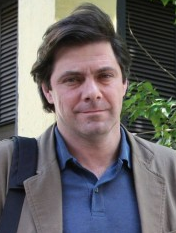
Kirill Rogov
Kirill Rogov is a senior research fellow at the Gaidar Institute for Economic Policy, a member of the Council on Foreign and Defense Policy, and a member of the supervisory board of the Liberal Mission Foundation (Moscow). Originally a specialist in Russian intellectual and cultural history of the 18th and 19th centuries, Mr. Rogov started his career as a journalist in the late 1990s. In the 2000s, he was co-founder and editor-in-chief of the news and opinion portal “Polit.Ru” – one of the first Russian on-line media. He was a columnist for the leading business daily Vedomosti, and later deputy editor-in-chief at Kommersant Daily, another leading Russian newspaper. In 2007 - 2015 Mr. Rogov had held positions at the Gaidar Institute for Economic Policy, the leading Russian think-tank in economics, and at the Academy for the National Economy and Public Policy. In 2010-2011, he was an academic secretary and a member of the editorial committee of the working group on economic growth that formulated the Government Strategy Until 2020 (Strategy-2020). His recent articles published in Russia and abroad are focused on problems of current political development, public opinion and the post-Soviet history of Russia. He is a columnist for Vedomosti, Forbes–Russia, Novaya Gazeta, and others.

Rafal Rohozinski
Rafal Rohozinski is co-founder and principal of the SecDev Group. He was recently named to the Forbes list of top ten cyber experts to follow. Prior to founding SecDev, Rohozinski spent 17 years working in an operational capacity in 37 countries including conflict zones in the former Soviet Union, the Middle East and Africa. Rafal is an active scholar. He has held academic appointments and fellowships from the Ford Foundation, Munk School of Global Affairs, and is currently a senior consulting Fellow with the UK based International Institute for Strategic Studies. His many publications include the Ghostnet study of Chinese cyberespionage (2009), Forging Special Operations Cyber Capabilities to Counter Terrorism (JSOU), ‘Cyberspace and Open Empowerment in Latin America’ (Strategic Note, 2013), ‘Stuxnet and the Future of Cyberwar’ (Survival, IISS, 2011 and, Strategic utility of cyberspace operations (2010 US Army War College). He frequently lectures to military and intelligence audiences in the UK, US and Canada, as recently served as adjunct faculty at US Joint Special Operation University.
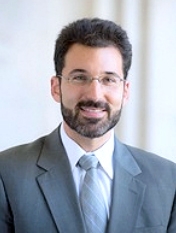
Matthew Rojansky
Matthew Rojansky is the Director of the Kennan Institute, as well as an adjunct professor at both Johns Hopkins SAIS and American University. Mr. Rojansky is an expert on U.S. relations with the states of the former Soviet Union, especially Russia, Ukraine, Belarus and Moldova. He has advised governments, intergovernmental organizations, and major private actors on conflict resolution and efforts to enhance shared security throughout the Euro-Atlantic and Eurasian region. Prior to entering his role with the Kennan Institute, from 2010 to 2013, Mr. Rojansky was Deputy Director of the Russia and Eurasia Program at the Carnegie Endowment for International Peace. There, he founded Carnegie’s Ukraine Program, led a multi-year project to support U.S.-Russia health cooperation, and created a track-two task force to promote resolution of the Moldova-Transnistria conflict. From 2007 to 2010, Mr. Rojansky served as executive director of the Partnership for a Secure America (PSA), where he worked on issues relating to arms control and nonproliferation. Founded by former congressman Lee Hamilton (D-IN) and former senator Warren Rudman (R-NH) with a group of two dozen former senior leaders from both political parties, PSA seeks to rebuild bipartisan dialogue and productive debate on U.S. national security and foreign policy challenges. While at PSA, Mr. Rojansky orchestrated high-level bipartisan initiatives aimed at repairing the U.S.-Russian relationship, strengthening the U.S. commitment to nuclear arms control and nonproliferation, and leveraging global science engagement for diplomacy. Mr. Rojansky serves as U.S. Executive Secretary for the Dartmouth Conference, a track-two U.S.-Russian conflict resolution initiative begun in 1960. He has lectured at colleges and universities throughout the United States, Russia and Europe. He is frequently interviewed on TV and radio, and his writing has appeared in the International Herald Tribune, the Washington Post, and Foreign Policy.
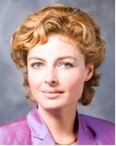
Asya Rudkovskaya
Dr. Asya Rudkovskaya is aSenior Digital Strategy Adviser at the World Bank. Dr. Rudkovskaya advises global business and government leaders on competitiveness and digital transformation strategies. In her role as Senior Digital Strategy Advisor for the World Bank, she is leading engagements with the governments of Russia and the Eurasian Economic Union on helping shape their Digital Transformation Strategies. Earlier, as Managing Director in Cisco’s Emerging Markets theater responsible for driving the company’s public sector business, she advised government leaders on the strategic use of digital technologies to achieve their national development objectives and sustainable national, regional and global competitive advantage. Dr. Rudkovskaya was also Chairman of the Cisco Trusted Advisor Club - a quarterly forum of visionaries and Global Fortune 500 senior executives aimed at exchanging thought leadership and best practice on the critical business issues of the day and the role of ICT in building strategies for future competitiveness. Prior to joining Cisco Dr. Rudkovskaya was Director of Michael Porter’s Harvard Business School Center for Middle East Competitive Strategy. She led operations in Turkey and the Near East, working with governments, private sector and NGOs on cluster-building, private-public sector partnerships, and developing strategies for national competitiveness.
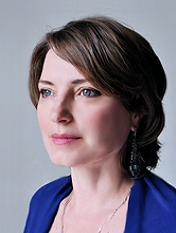
Natalia Sevagina
Natalia Sergeyevna Sevagina is an Associate in the Research and Education division of the State Tretyakov Gallery in Moscow. She completed her undergraduate education at the Russian Academy of Painting, Sculpture and Architecture in Moscow, as well as the Novoaltay College of Art and the Republican Art School in Tallinn. She received her master’s degree from the Russian Academy of Painting, Sculpture, and Architecture in Moscow. Prior to joining the staff at the Tretyakov Gallery, Sevagina taught art history, painting and drawing in secondary and tertiary educational institutions of the City of Moscow. She then served for ten years as a senior research associate at the Ilya Glazunov State Art Gallery.
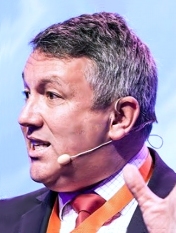
Stephan De Spiegeleire
Stephan has worked as a defense and security analyst at the RAND Corporation for nearly 10 years, interrupted by 3-year stints at SWP (Germany) and the WEU’s Institute for Security Studies (France). Since 2004 he works in research institutes in the Netherlands (Principal Scientist at HCSS and Senior Advisor Defense and Security at TNO) and also teaches at Webster University and at military academies across the world. Stephan’s current main research area is international defense and security planning, with a special focus on security foresight, risk assessment, (comprehensive) capabilities based planning, strategic balance of investment, performance management, human-centered defense design. He still maintains an active interest and research portfolio on post-Soviet issues, especially pertaining to Russia and Ukraine.
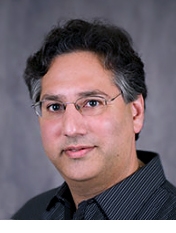
Adam Stulberg
Dr. Stulberg is Professor and Neal Family Chair; Associate Chair/Research; and Co-Director, Center for International Strategy, Technology, and Policy (CISTP) in the Sam Nunn School of International Affairs. He teaches undergraduate and graduate courses on international security, Russia/Eurasian politics and security affairs, nuclear (non)proliferation, and energy and international security, as well as inter-disciplinary courses on science, technology, and international security policy. His current research focuses on the geopolitics of oil and gas networks, energy security dilemmas and statecraft in Eurasia, Russia and “gray zone” conflicts, new approaches to strategic stability and denuclearization of military arsenals, internationalization of the nuclear fuel cycle, and implications of emerging technologies for strategic stability and international security. Dr. Stulberg earned his Ph.D. in Political Science from the University of California, Los Angeles (UCLA), as well as holds an M.A. in International Affairs from Columbia University, an M.A. in Political Science from UCLA, and a B.A. in History from the University of Michigan. He served as a Political Consultant at RAND from 1987-1997, and as a Senior Research Associate at the Center for Nonproliferation Studies (CNS), Middlebury Institute of International Studies at Monterey (1997-1998). He has worked closely with former Senator Sam Nunn drafting policy recommendations and background studies on future directions for the U.S. Cooperative Threat Reduction Program, building regional and energy security regimes in Central Asia and the South Caucasus, and engaging Russia’s regional power centers. Dr. Stulberg was a post-doctoral fellow at CNS; policy scholar at the EastWest Institute; and has been a consultant to the Carnegie Corporation of New York and the Office of Net Assessment, Office of the U.S. Secretary of Defense. Dr. Stulberg has authored and edited four books, and has published widely in leading academic and policy journals. In addition, he served on the Executive Committee of the Nuclear Nonproliferation Technical Group, American Nuclear Society.
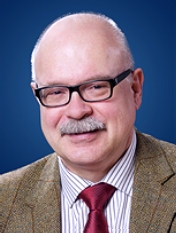
Dmitri Trenin
Dr. Dmitri Trenin, Director of the Carnegie Moscow Center, is chair of its Foreign and Security Policy Program. He has been with the Carnegie Moscow Center since its inception in 1993. He retired from the Russian Army in 1993. From 1993–1997, Trenin held a post as a senior research fellow at the Institute of Europe in Moscow. In 1993, he was a senior research fellow at the NATO Defense College in Rome. He served in the Soviet and Russian armed forces from 1972 to 1993, including experience working as a liaison officer in the external relations branch of the Group of Soviet Forces (stationed in Potsdam) and as a staff member of the delegation to the U.S.-Soviet nuclear arms talks in Geneva from 1985 to 1991. He also taught at the War Studies Department of the Military Institute from 1986 to 1993. Dr. Trenin’s lectures addressed U.S.-Russian relations, Russian foreign policy, and the enduring significance of Russia to the United States.
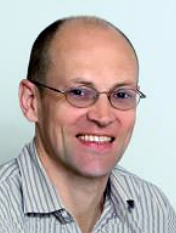
Andrei Tsygankov
Dr. Andrei P. Tsygankov is Professor at the departments of Political Science and International Relations at San Francisco State University. A Russian native, Tsygankov is a graduate of Moscow State University (Candidate of Sciences, 1991) and University of Southern California (Ph.D., 2000). He published several books in English and Russian including Anti-Russian Lobby and American Foreign Policy (2009), Russia and the West from Alexander to Putin (2012), and The Strong State in Russia (2014), as well as many journal articles.
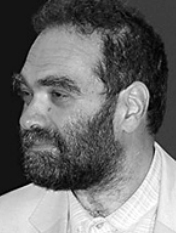
Andrei Zorin
Dr. Andrei Zorin is a Professor of Russian and a Fellow of New College at Oxford University as well as a professor in the Russian Presidential Academy of National Economy and Public Administration. He is a member of the editorial boards of the journals «New Literary Observer», «Slavic Review», and «Cahiers de Monde Russe». His areas of specialization are Russian Literature and Russian Cultural History, especially of the XVIII- XIX centuries. His research includes Russian literature and culture of the 18th – beginning of the 19th centuries in the European context, the cultural history of emotions, and the history of the cultured community in Russia and in the USSR. Dr. Zorin graduated from Moscow State University (1978) and completed his Dissertation (1983) and Habilitation (2000) also at Moscow State University.
